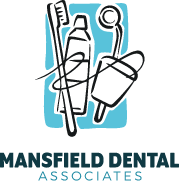Did you know diabetes can affect your oral health? If you are one of the more than 24 million Americans living with diabetes, Mansfield dentists Dr. S. Blair Jones and Dr. Seth Harris want you to know about the correlation between chronic high blood sugar and oral health problems.
Diabetes is a lifelong disease that can cause blurry vision, excess thirst, fatigue, and frequent urination. It can affect the kidneys, nerves, and mouth. According to the American Diabetes Association, diabetics are at a greater risk for tooth decay because there are more bacteria in their saliva when their diabetes isn’t controlled. Diabetes can also lower the body’s ability to fight infection and pave the way for periodontal disease to develop. Diabetic patients should call Mansfield Dental Associates if they observe red, swollen, or tender gums, chronic bad breath, a bad taste in the mouth, teeth that are loose or separating, or changes in tooth alignment.
Diabetes can cause dry mouth, which increases the risk for tooth decay and gum disease, as well. This is because there is less saliva to wash away germs and the acids they create. Chewing sugarless gum or drinking water can reduce dry mouth. While gum disease is the most common diabetes-related complication, Oral candidiasis, a fungal infection in the mouth, is also more prevalent in people with diabetes. If a diabetic patient smokes, has high blood glucose levels, or takes antibiotics, oral candidiasis is more likely. (more…)





Recent Comments